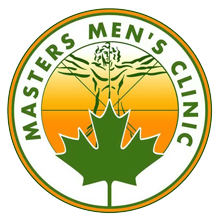Does Low Testosterone Increase The Risk of Death?
Dr. Komer comments…
My comments on the article below: This confirms the findings on some other studies. Endocrinologists often do not deal with testosterone. The Masters Men’s Clinic now has over 1000 men on testosterone replacement and have refined treatment protocols to ensure safety and effectiveness. The incidence of problems is extremely low and the benefits can be very substantial, not only in life and death terms such as this study , but also in quality of life. The commonest symptoms of low testosterone are any or all of the following: fatigue, poor quality of sleep, falling asleep after meals, irritability, depression, joint and muscle ache after workouts, a lack of vitality and erectile dysfunction.
Dr L Komer
Low testosterone ‘increases death risk’
Wednesday, 06 Jun 2007 10:49
Testosterone is the main male sex hormone
Men with low levels of testosterone may have an increased risk of death over the age of 50, new research claims.
Scientists behind the study say it is the first to link deficiency of this sex hormone with increased death from all causes over time in relatively healthy men living in the community.
Study author Dr Gail Laughlin argued that the research “strongly suggests that the association between testosterone levels and death is not simply due to some acute illness”.
Higher levels of testosterone were not linked with a decreased risk of mortality.
The results were presented yesterday at The Endocrine Society’s annual meeting in Toronto.
Researchers studied all causes of death in nearly 800 men aged between 50 and 91 over an 18-year period from the 1970s onwards.
This group had a 33 per cent greater risk of death during the following years than men with higher testosterone levels.
The study ruled out other factors including smoking, drinking, physical activity level or pre-existing diseases (such as diabetes or heart disease) as contributing to this increased risk.
Men with low testosterone were more likely to have elevated markers of inflammation, which may contribute to diseases, and larger waist girth along with a number of cardiovascular and diabetes disease risk factors related to this type of fat build-up.
“It’s very possible that lifestyle determines what level of testosterone a patient has – it may be possible to alter the testosterone level by lowering obesity,” said principal investigator Dr Elizabeth Barrett-Connor.
“We are very excited about these findings, which have important implications, but we are not ready to say that men should go out and get testosterone to prolong their lives. We’re not ready to take this to the prescribing pharmacist.”







